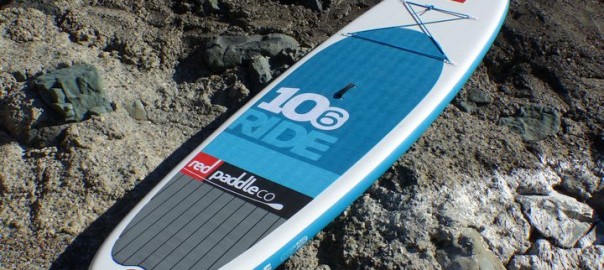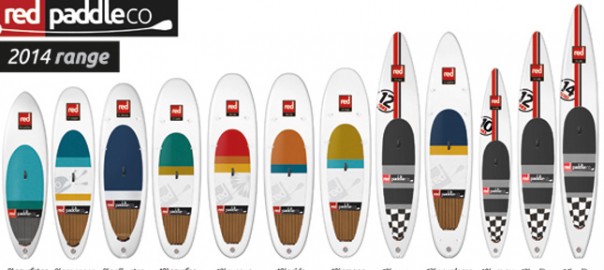We first stumbled across the Red Air inflatable SUPs from Red Paddle Company in early 2012.
Founded in 2007, Red Paddle Co. is a UK-based business focused solely on the design and manufacture of inflatable paddle boards and accessories – and rapidly becoming one of the most popular.
Well-known for their ruggedness, each of the Red Air boards utilize high-pressure, dropstitch technology – allowing them to be inflated from 15-25 PSI – and feature quadruple rail construction with double layering.
In October, some of the new 2015 models arrived in the States; having previously reviewed the 2012 and 2013 models, we were eager to take a re-look to see how the boards had evolved.
Our first choice was the new 2015 Ride 10-6 – one of the new “blue bellies” from Red Paddle Co – surely one of the top selling inflatable boards, and rapidly becoming an industry classic.
Following is our (re) write-up on the 2015 Red Air Ten Six Ride from Red Paddle Company. (Please note, some of this is repeated from previous writeups.)
Getting Started with the Red Paddle Co Ride 10-6
The box as received weighs 38 lbs, measuring 37 x 15 x 15 inches.
Inside the box is the SUP body, back pack, HP EZee pump, pressure gauge, cinch belt, fin guards, instructions and repair kit – and a very nifty bonus cell phone case! Once rolled up, the SUP board and pump fit into the backpack, as well as a breakdown paddle under 37 inches.
Weight is 34 lbs for backpack, board and pump, which all easily fit in the back of a small car. The board alone is 25 lbs.
Ride 10-6 Set-Up and Inflation
The 10’6 Ride inflatable SUP arrives rolled up around the high pressure EZee pump, inside the backpack. While the box included instructions in French, if you locate the cell phone case (attached to the back pack), the English version is folded inside the case.
Remove the fin guards and unroll the SUP body. There are three integrated tracking fins at the rear of the board. Lay it out face up (fins down) so that you can access the military valve.
The Red Air Ride 10’6 utilizes one spring-loaded military valve for inflation. These are very simple to use and feature an inflate mode (spring plunger is UP) and a deflate mode (spring plunger is DOWN). By using your finger to gently push on the plunger, it can be moved to the inflate mode (air goes in and doesn’t come back out) and deflate mode (air goes in and comes back out). Before you go to all the effort of inflating the board, PLEASE make sure the plunger is in the inflate position.
The included single-action pump comes with a pressure gauge, so


You must be logged in to post a comment.